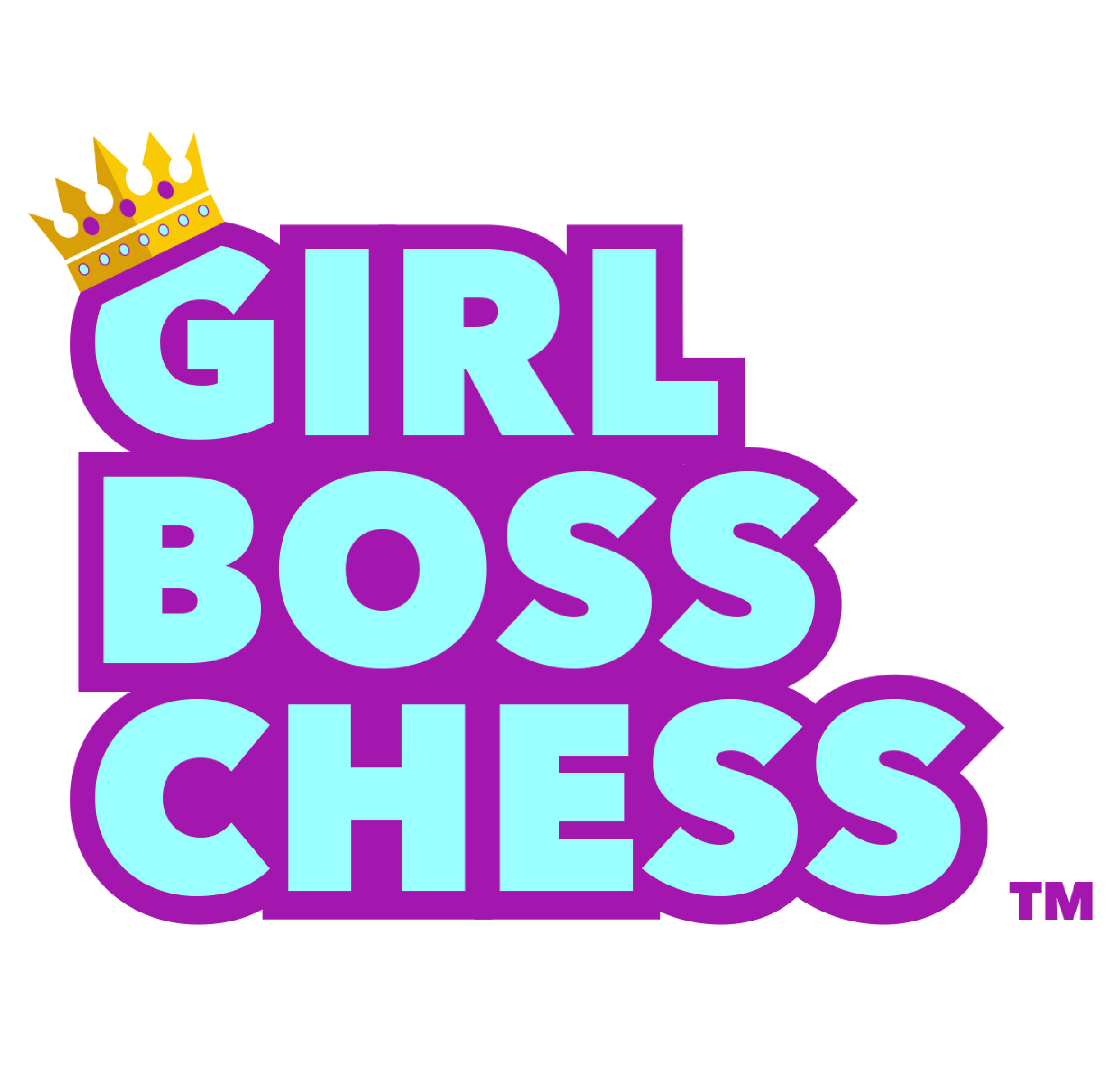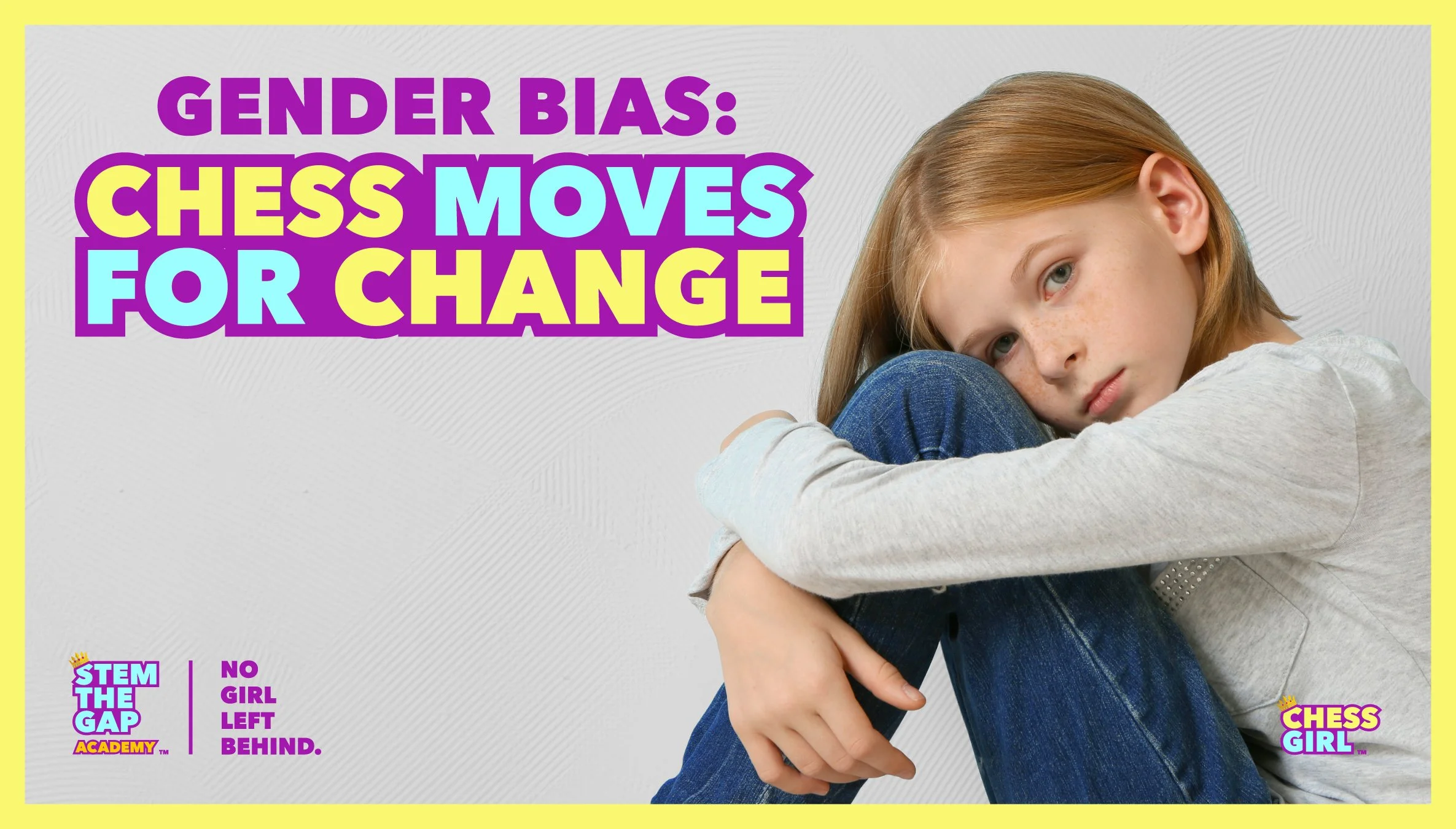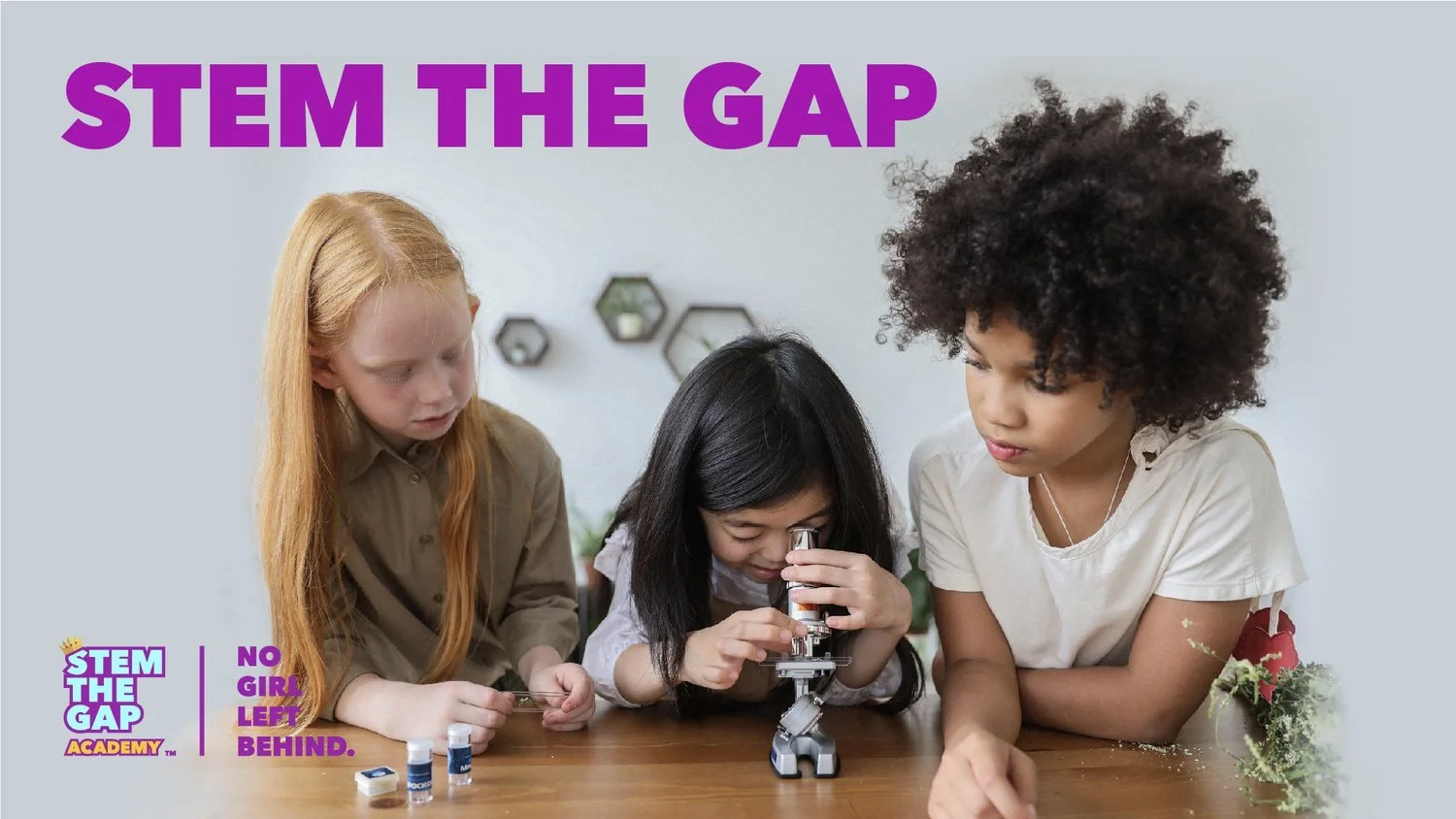Gender Bias: Chess Moves for Change
In a recent study conducted by New York University, researchers delved into the world of chess and confirmed a finding that STEM the Gap Academy has been voicing since its foundation: gender bias exists within the chess community and it can have significant consequences for young female players. While this study is recent, its findings align profoundly with the mission and work of STEM the Gap Academy, which is dedicated to empowering, inspiring and encouraging girls in STEM fields, including chess.
The NYU study, titled "Checking Gender Bias: Parents and Mentors Perceive Less Chess Potential in Girls," examined the attitudes of parents and mentors toward young female chess players. The results were eye-opening and reinforced what many in the chess community have been saying for years: gender bias is a pervasive issue that can affect girls' potential to enter and thrive in the sport of chess and beyond.
What did the study reveal? Parents and mentors showed bias by favouring young male players, thinking they had more potential. Those who believed success in the chess world required "brilliance" thought girls might quit because they believed girls lacked the required brilliance to continue in the sport. Additionally, many adults didn't notice the challenges girls faced in chess, nor did they even realize that their own biases might hinder or stunt girls’ progress and development.
These findings echo the core principles of STEM the Gap Academy. For years, we have been committed to providing girls with a comprehensive foundation in critical thinking, problem-solving, logic and reasoning, all through various avenues of STEM education, including chess. We firmly believe that every girl has untapped potential waiting to be unleashed, and gender bias should never stand in their way.
At STEM the Gap Academy, we recognize the profound impact of biases and stereotypes, especially in fields like chess that have traditionally been male-dominated. Our programs are carefully designed to counter these biases and provide girls with a supportive and inclusive environment where they can flourish without constraints.
Our mission isn't just about teaching chess; it's about empowering girls to build confidence, resilience and a growth mindset to be able to enter STEM fields and bridge the gender gap in those domains. We work to equip them with the skills and mindset needed to overcome any challenges, especially those posed by gender bias.
The NYU study serves as a powerful reminder that change is needed within the chess community and beyond. It emphasizes the critical role that parents, mentors, and organizations like STEM the Gap Academy play in shaping a more equitable future for girls in chess and other STEM fields.
While the NYU study may be recent, its findings resonate deeply and confirm the importance of the work and mission of STEM the Gap Academy. We have been advocating for years to eliminate gender bias and create opportunities for girls to thrive in STEM. This study reaffirms the urgency of our mission, and we remain steadfast in our commitment to breaking down barriers and empowering girls to reach their full potential in all fields, undeterred by stereotypes or biases. Together, we can create a more inclusive and equitable future for girls everywhere and make sure that no girl is truly ever left behind.
If you are interested in enrolling your girl or recommending STEM the Gap Academy programs to girls in your family or wider community, please get in touch at info@stemthegapacademy.com or visit our website to learn more about our programs.
By Sally Sampson










